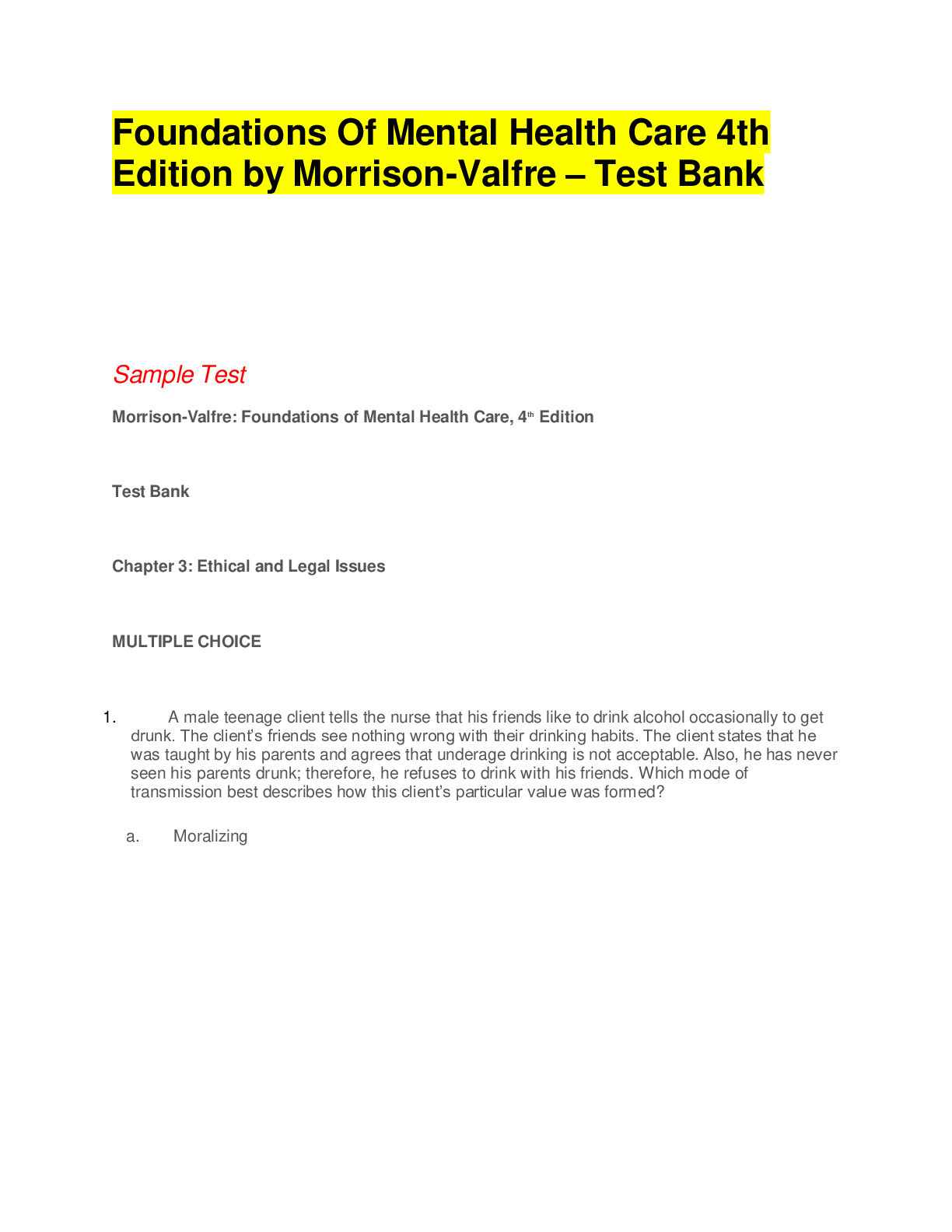All study resources > Foundations of Mental Health Care, 4th Edition Test Bank Chapter 3: Ethical and Legal Issues (Nursing)
Foundations of Mental Health Care, 4th Edition Test Bank Chapter 3: Ethical and Legal Issues
1. A male teenage client tells the nurse that his friends like to drink alcohol occasionally to get drunk. The client’s friends see nothing wrong with their drinking habits. The client states that he was taught by his parents and agrees that underage drinking is not acceptable. Also, he has never seen his parents drunk; therefore, he refuses to drink with his friends. Which mode of transmission
...[Show More]
1. A male teenage client tells the nurse that his friends like to drink alcohol occasionally to get drunk. The client’s friends see nothing wrong with their drinking habits. The client states that he was taught by his parents and agrees that underage drinking is not acceptable. Also, he has never seen his parents drunk; therefore, he refuses to drink with his friends. Which mode of transmission best describes how this client’s particular value was formed?
a. Moralizing
b. Modeling
c. Reward-punishment
d. Laissez-faire
2. A female client becomes combative when the nurse attempts to administer routine medications. The nurse would like to ignore the client but chooses to talk with the client to calm her. The nurse is successful in calming the client, and the client takes her medications. What process best describes how the nurse decided on the course of action taken?
a. Values clarification
b. Nurse’s rights
c. Beliefs
d. Morals
3. Which patient right may clients with mental health disorders lose during treatment?
a. Confidentiality of records
b. Freedom from restraint or seclusion
c. Humane treatment environment
d. Referral to other mental health providers on discharge
4. Twenty three states have enacted mental health parity laws. The most accurate description of these laws is that they require insurance companies to:
a. Include coverage for mental illness
b. Include coverage for substance abuse treatment
c. Include coverage for mental illness that is equal to coverage for physical illness
d. Include coverage for outpatient therapy for individuals with substance abuse
5. The rights of the care provider include the right to:
a. Fair pay
b. Fair benefits from employers
c. Refuse to care for individuals who may cause harm to the care provider
d. Respect as individuals
6. The Nurse’s Code of Ethics includes the main concepts of autonomy, beneficence, justice, and:
a. Rights
b. Morals
c. Nonmaleficence
d. Prudence
7. The client is feeling very anxious and has requested that a p.r.n. antianxiety medication be ordered. The nurse informs the client that the medication can be administered only every 4 hours and was given 3 hours ago. The nurse promises to give the client the medication as soon as it is due, but the nurse goes to lunch 1 hour later without giving the client the medication. Which ethical principle did the nurse violate?
a. Fidelity
b. Veracity
c. Confidentiality
d. Justice
[Show Less]
